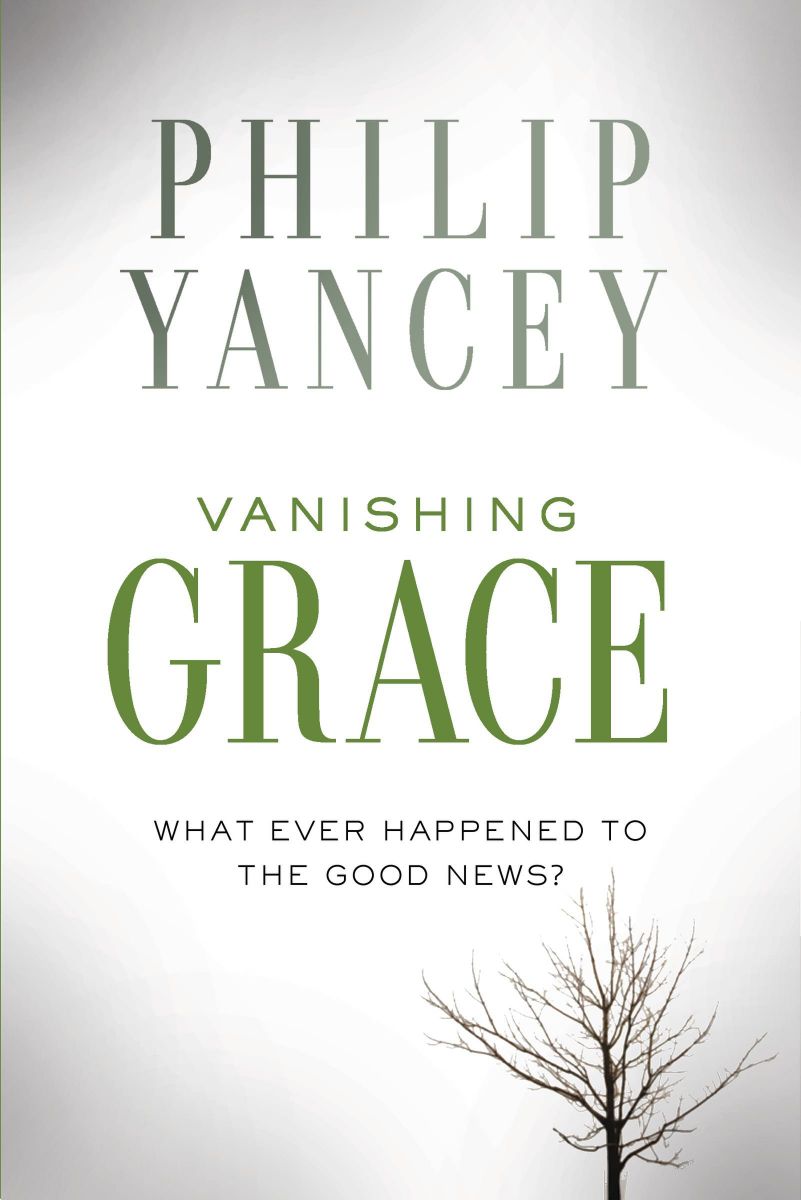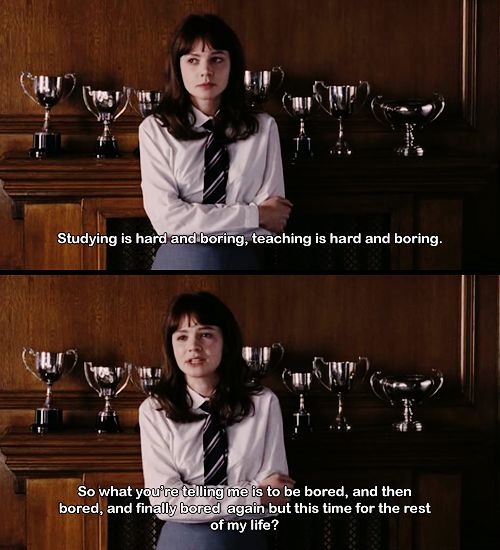Why Christians Should Engage Popular Culture: Worship and Bridge-Building
The following blog post is a short talk I gave at Highfields Church in Cardiff, U.K. for their "Face the Word" program they hold occasionally on Sunday evenings where they explore contemporary issues from a Christian perspective.
January 2015
Why Christians Should Engage Popular Culture: Worship and Bridge-building
Intro: For people who know my name, at least in the U.K., I’ve got the reputation as “that pop culture guy.” I wrote a book, and do some lectures and workshops. Being into popular culture somehow makes me unusual, but I wish it didn’t. I wish all U.K. Evangelicals were engaging popular culture. I think this would be a good and healthy thing spiritually, for Christians here. Not that I’m saying, “I have the spiritual secret of the ages, and what I have discovered I now reveal to you.” But I do think that popular culture, non-Christian popular culture, can be a tremendous resource for the Christian church for both our own spiritual lives, and for outreach. In fact, by not being engaged with popular culture, I think Christians are missing opportunities to worship, and opportunities to build bridges to non-Christians who need the gospel. Let me address each other those briefly in turn.
I. Worship
Worship is perhaps the most basic, fundamental aspect of life with God. Doesn’t the Westminster Shorter Catechism put it as Q&A number 1? “What is the chief end of man: to glorify God and enjoy him forever.” (Or, I quite like John Piper’s spin on that: to glorify God by enjoying him forever.) A proper understanding of the Christian life subsumes every activity, thought, word and deed under the heading of “worship.” Everything in our lives is supposed to be about worshipping God.
There’s one teeny tiny little problem: I’m really bad at it. My heart tends to be sluggish and cold when it comes to worship. When I pray, I try to start with some time just adoring God, and it always feels like climbing up a steep hill. Maybe I’m just too self-focused, or distracted, or whatever. But I think the cardinal problem is a failure of my imagination. When confronted with infinite beauty and power and love and wisdom and perfection, my mind just collapses and I fall back on clichés that sound hollow, even to me. I don’t think this failure of imagination is my problem alone. In fact, I see it in a lot of Christian popular culture as well: it’s trying to describe someone so spectacular and mind-blowing, it often falls back on sentimental metaphors and ends up being saccharine fluff.
And here’s where I think non-Christian popular culture can be such a help to us. Non-Christian popular culture (at least the good stuff) is replete with images of awesomeness. It is full to the brim with awesome. This is not random happenstance. That awesome is there for a reason: people made in the image of God cannot help but produce fragmentary and refracted images of the original Awesome. And this means that the awesome in popular culture ultimately points to the (capital A) Awesome God that we serve. Our job, then, as Christians, is to find the awesome and connect it with the Awesome, to ignite our feeble imaginations into worship worthy of him. It has been watching really, really good popular culture – that’s when I feel my heart warmed to praise. Popular culture, properly understood, can warm the heart to worship.
This may sound terribly strange, so let me give you an example. I was raised on mother’s milk and monster movies. And not just any monster movies, but giant Japanese monster movies (called kaiju movies). You know the ones, where sweaty Japanese men in rubber suits kick and punch one another while reducing Tokyo to rubble. Godzilla, King Ghidora, Mothra, Rodan – these were the fixtures on my Mount Olympus growing up as a boy; they were my Mount Rushmore.
So imagine my intense delight when I heard that the acclaimed Mexican director, Guillermo Del Toro, was going to do an homage to kaiju movies! I saw the trailer to Pacific Rim the first day it was released, and I saw the movie with a couple of my kids (the ones who like kaiju movies) in the theater. And behold, it was AWESOME! The dialogue wasn’t great, but who watches kaiju movies for dialogue? The visuals, however, were stunning. Most of the movie is about gigantic human-made robots called jaegers who fight monsters who rise from the sea to lay waste the earth. The sheer size of these massive robots matches the size of apartment buildings, and they deliver earth shattering steely punches in the jaws of menacing kaijus who were bent on destroying humanity. I seriously got chills just watching it.
But think about it: faced with enemies that are bent on destroying us, humanity on the edge of despair, and then something huge and powerful wades out into the water to meet our foe, someone huuuuuuge fighting our battles for us, giving us hope….hmmmm, sound familiar? What is it but an image of our awesome God who wades into battle, his mighty strength in his arm ready to crush those who harm his people? (Haven’t you ever wanted to see God punch evil in the face? Haven’t you?) Why is it that Christians can have the hope that evil will someday be defeated and every tear wiped dry? Because our God is huge and powerful and wise and loves us with a fierce love. Try it sometime: watch Pacific Rim and then read Ps. 3, or Ps. 29, or Isaiah 27 or 51, Revelation 19. It helps. This isn’t me just geeking out. This is me being brought into the presence of an awesome God through something as unlikely as popular culture. Pay attention to it: it can help you worship.
Now take what I just told you about divine strength and Pacific Rim, and multiply it a thousand-fold, and you’ll begin to get an idea of what I mean about popular culture and the images of the awesomeness of God. Popular culture contains not just images of God’s strength, but also images of his love, peace, mercy, justice, wisdom, and all the other perfections of God – displayed imperfectly to be sure, but vividly, really, movingly.
“But,” some will say, “isn’t there a danger that these awesome and moving images will entice our hearts away from the true God?” Of course there’s a danger of having our hearts enticed into idolatry, but the danger is there no matter what. Our hearts can be enticed away from God by the beauty of a sunset or the tenderness of a spouse’s affection. What really guards us from idolatry? Not having spouses? Not looking at sunsets? No, what guards us from idolatry is being steeped in the Word of God, in prayer, in the community of Christians, the sacraments, all the means of grace that center us on the reality of the gospel. It is the same with popular culture. I’m not saying “steep yourself in popular culture instead of the Bible.” I’m saying “enjoy popular culture having steeped yourself well in the Bible, and let what you see move you to worship the true and living God.” Seen with the right eyes, popular culture is a blessing, not a curse. It does mean you have to think about the popular culture you consume in terms of Christian truth. But any time Christians can be spurred into reflection about the majesty of God, I think that’s a good thing.
The church, by treating popular culture as an unclean thing or a trivial thing unworthy of reflection, misses out on a chance to bring our hazy imaginations into focus for worship. We miss out on a huge imaginative resource that can help us in our lethargy. We miss out on the awesome. And I think that’s a shame.
II. Building Bridges
The second reason I think engaging popular culture is important is that it helps us to build bridges to a culture increasingly alienated from the gospel. One of the depressing facts of the last several decades is the waning social influence of evangelical faith in the cultural outlook in the U.K. and North America. I’m reading Philip Yancey’s new book,  Vanishing Grace: What Ever Happened to the Good News. He has some hard things to say about this new alienation between Evangelicals and the wider culture, namely, a big chunk of the blame is ours. We’ve done a really good job alienating ourselves from the people around us. And it seems that Evangelicals by in large have decided to respond to that alienation by hunkering down and creating a parallel culture that at no point interacts with the broader culture (except perhaps to grumble judgment at it from time to time that it’s all wrong and it should move in our direction). Many Evangelicals have even made cultural withdrawal into a virtue, as if being sheltered and ignorant of culture were something holy. There is a mindset among some Evangelicals that our holiness is something self-generated and is measured in terms of our pop cultural abstentions. That’s crazy, and I believe it is a huge missed opportunity.
Vanishing Grace: What Ever Happened to the Good News. He has some hard things to say about this new alienation between Evangelicals and the wider culture, namely, a big chunk of the blame is ours. We’ve done a really good job alienating ourselves from the people around us. And it seems that Evangelicals by in large have decided to respond to that alienation by hunkering down and creating a parallel culture that at no point interacts with the broader culture (except perhaps to grumble judgment at it from time to time that it’s all wrong and it should move in our direction). Many Evangelicals have even made cultural withdrawal into a virtue, as if being sheltered and ignorant of culture were something holy. There is a mindset among some Evangelicals that our holiness is something self-generated and is measured in terms of our pop cultural abstentions. That’s crazy, and I believe it is a huge missed opportunity.
Yes, there are some pieces of popular culture that we should abstain from – I’m not arguing that every Christian ought to engage every television show or song or video game. You need to be aware of the weaknesses in your own heart, and your children’s hearts, and tread lightly in those areas. There are some places you need to avoid.
But it’s quite another thing to advocate cultural abstention in toto. This isn’t what Jesus has called us to. In John 14, Jesus said we are not to be “of the world,” (that is, we have a different fundamental loyalty, a different first love, than the world around us), but we are called as his disciples into the world – we are to build bridges, get to know sinners in their world. And that means acquainting ourselves with popular culture, for that is their world. It is through engaging popular culture that we see our neighbors’ hearts unveiled, we learn to develop empathy for them, as well as learn to discern their native idols, their hopes, their fears, their struggles. It is just there that we learn to speak their language.
We Evangelicals, rather than .jpg) pushing ourselves further toward the margins of our culture, should do what Paul did and find bridges to connect with our culture. Recall what he did in Acts 17 as he addressed the intellectual hipsters of Athens. He connects with them, and then subverts their categories by showing them the true God in a language familiar to them:
pushing ourselves further toward the margins of our culture, should do what Paul did and find bridges to connect with our culture. Recall what he did in Acts 17 as he addressed the intellectual hipsters of Athens. He connects with them, and then subverts their categories by showing them the true God in a language familiar to them:
Well, you guys sure are certainly a religiously observant bunch, aren’t you? You even worship gods you don’t know! Heard of Zeus? Big fella, hurls lightning bolts? Course you have! You’re religious! Well, doesn’t one of your own poets say that “in him we live and move and have our being”? If that’s how God is, then isn’t it kinda dumb to build statues and houses for him? I mean, we live in him. Surely there’s got to be a better way of being religious. Well, lemme clue you in to how God operates, the very God one of your altars says you don’t know, I’m gonna proclaim him to you. He created everything, doesn’t need anything from us. But he’s close, really close. And he’s watching. In fact, he’s appointed a human representative to judge us all, and he proved that this was his own representative by raising this man from the dead.
This is cultural subversion. You start with popular culture (and the poets of that day were the Athenian MTV, Greek drama was their movie multiplex, their Youtube), you build bridges employing truth and goodness where you find them, and then you bring it into the light of God’s truth. And all of a sudden, what we say to non-Christians starts making sense. They may not agree, but they’ll see what it really means, and perhaps hunger for it. You can learn to speak to the hearts, to connect with them better, love them better. Why? Because popular culture at its best raises issues of deep human significance that Christian and non-Christian alike must wrestle with, issues like love, sex, death, work, art, purpose, war, peace, addiction, alienation, loneliness, and community. Let popular culture be a bridge between you and your non-Christian friends so the Spirit can flow as you share words of life and hope.
build bridges employing truth and goodness where you find them, and then you bring it into the light of God’s truth. And all of a sudden, what we say to non-Christians starts making sense. They may not agree, but they’ll see what it really means, and perhaps hunger for it. You can learn to speak to the hearts, to connect with them better, love them better. Why? Because popular culture at its best raises issues of deep human significance that Christian and non-Christian alike must wrestle with, issues like love, sex, death, work, art, purpose, war, peace, addiction, alienation, loneliness, and community. Let popular culture be a bridge between you and your non-Christian friends so the Spirit can flow as you share words of life and hope.
Let me give you a brief illustration of how this works. We regularly invite students and friends into our home to watch and discuss movies. Some years ago we watched the movie An Education, a film set in the grey and drab post-war period in England. The story concerns a 16-year-old girl , Jenny, who is seduced by a handsome, worldly Jewish man nearly twice her age. When the headmistress of her posh public school finds out that she’s planning on marrying him, she calls Jenny into her office. She scolds her and pleads with her to give up her foolish notions. She says, “Now I realize that school can be hard and boring,” at which point Jenny can contain herself no longer. She bursts out:
“Boring!” and Mrs. Walters says, “What?”
“Studying is hard and boring. Teaching is hard and boring. So you’re telling me to be bored, and then bored, and then finally bored again, this time for the rest of my life. This whole stupid country is bored. There’s no life in it, or colour in it, or fun in it. It’s probably just as well that the Russians are going to drop a nuclear bomb on us any day now. So my choice is either to do something hard and boring, OR to marry my... my Jew, and go to Paris and Rome and listen to jazz and read and eat good food in nice restaurants and have fun. It’s not enough to educate us any more, Mrs. Walters. You’ve got to tell us why you’re doing it.”
 And Mrs. Walters mutters something irrelevant, and Jenny leaves to pursue her foolish choice (which, not surprisingly, doesn’t work out too well). But you’ve got to admit, Jenny’s question is a good one: in the absence of any sense of overarching purpose, why commit yourself to something hard and boring? Why not do something stupid and have fun? It’s a question for the ages, folks, but extremely relevant in our own present age.
And Mrs. Walters mutters something irrelevant, and Jenny leaves to pursue her foolish choice (which, not surprisingly, doesn’t work out too well). But you’ve got to admit, Jenny’s question is a good one: in the absence of any sense of overarching purpose, why commit yourself to something hard and boring? Why not do something stupid and have fun? It’s a question for the ages, folks, but extremely relevant in our own present age.
In discussing the movie, and the bad choices that Jenny made, one French student of mine (an atheist almost certainly) interrupted and said, “Well what if there is no point to it all? Wouldn’t Jenny be completely justified in her choices?!” And we began to talk about purpose and meaning. After a while, I remember saying something like, “But you know deep down that life has meaning. From the time you get up and make yourself breakfast and all through the day until you go to sleep, you act as if you have a reason for living – you plan, you construct, you order, you work towards goals. The whole fabric of your life tells you that there’s meaning out there, whether we like it or not.” She thought about that. And then the conversation shifted, and the questions started changing. She began asking, “So if there is a God, what does that mean? Must I reject my homosexual friend? Do I have to start going to church? Do I have to stop sleeping with my boyfriend?”
All of those were difficult questions, but she had moved, spiritually, during the conversation from “I’m sure there is no God, so anything goes” to “I’m not sure there’s not a God, and perhaps we owe him something.” That’s a huge step for a French atheist to take. And she was able to take that step because we had a bridge between us constructed, partly, from a piece of popular culture: talking about meaning when life becomes hard and boring (because we’d seen a film that was not, incidentally, hard and boring). Popular culture gives us many such opportunities, if we but have the eyes to see them.
Conclusion: The Gospel Banishes Fear, Frees Us to Engage
All of this is to say that when we treat popular culture automatically as some unclean thing that we must avoid, or something trivial not worth thinking about, we miss out on opportunities for worship, and opportunities for connection with the wider world. The reason we miss out, I think, is that too often we are preoccupied with fear: fear that popular culture will trip us up in our walks with God, that it will seduce us and destroy us spiritually, fear for our children, fear of the growing cultural influence of people who are very unlike us. If you hear nothing else, hear this: you don’t need to be afraid. We and our children are saved by the blood of the Lamb, saved by the unlimited power of the Holy Spirit, by the wisdom and will of our Father in heaven. We are safe. Our position is unassailable. We don’t have to be afraid. Not that we can reckless and foolish, of course. But we ought to look at popular culture with the eyes of people who feel secure in the gospel. Look for opportunities for worship, for bridge building, and see how God uses it.
Recent comments
7 years 47 weeks ago
9 years 7 weeks ago
9 years 24 weeks ago
9 years 24 weeks ago
9 years 27 weeks ago
9 years 36 weeks ago
9 years 37 weeks ago
10 years 11 weeks ago
10 years 25 weeks ago
11 years 2 weeks ago